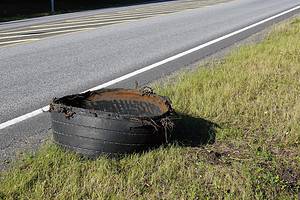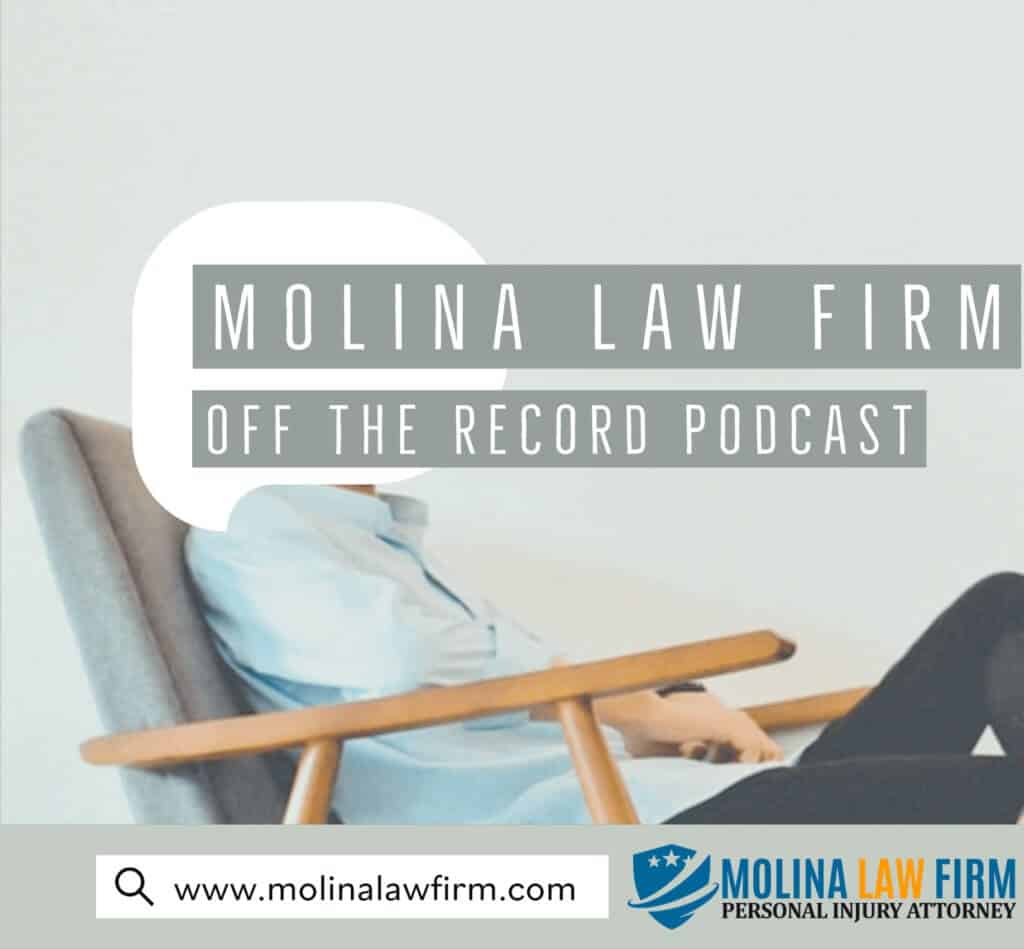Pasadena Truck Tire Blowout Causes
 According to the National Transportation Safety Board (NTSB), truck tire blowouts pose a significant risk to road safety, and there are thousands of incidents each year. Understanding the causes of truck tire blowouts is crucial for preventing accidents and ensuring safer roads in Pasadena, Texas.
According to the National Transportation Safety Board (NTSB), truck tire blowouts pose a significant risk to road safety, and there are thousands of incidents each year. Understanding the causes of truck tire blowouts is crucial for preventing accidents and ensuring safer roads in Pasadena, Texas.
Molina Law Firm is located at the Gulf Freeway and Fuqua, near Pasadena, Texas and the Pasadena zip codes of 77502, 77503, 77504, 77505, and 77506.
Pasadena Truck Tire Blowout Causes
Improper Tire Maintenance and Its Consequences
One of the leading causes of a Pasadena truck tire blowout is improper tire maintenance. Neglecting regular inspections, failing to inflate tires to the recommended pressure levels, and ignoring signs of wear and tear can significantly increase the risk of blowouts. Lack of proper maintenance can lead to tire deterioration, increased friction, and ultimately, catastrophic blowouts while driving.
The Dangers of Overloading Commercial Vehicles and Its Impact on Tires
Overloading commercial vehicles is another major factor that contributes to truck tire blowouts. Exceeding the weight limits specified by the manufacturer puts excessive strain on tires, causing them to overheat and potentially fail. It is crucial for fleet operators and truck drivers to adhere to weight restrictions to prevent the risk of blowouts and maintain optimal tire performance.
Risk Factors: Heat and Pasadena’s Climate Effect on Tire Integrity
The hot climate in Pasadena, Texas, poses an increased risk of tire blowouts. High temperatures can accelerate the breakdown of tire materials, leading to weakened tire integrity. Additionally, heat causes tire pressure to rise, increasing the likelihood of blowouts if tires are not adequately maintained. Understanding the impact of heat and taking precautions in hot weather conditions are crucial for preventing tire failures.
How Mismatched Tires Contribute to Truck Tire Blowouts
Mismatched tires, including using different sizes, types, or levels of wear, can significantly contribute to truck tire blowouts. Uneven distribution of weight and uneven wear on the tires can lead to instability and uneven stress, increasing the risk of blowouts. It is important to ensure that all tires on a commercial vehicle are properly matched to maintain optimal performance and reduce blowout risks.
Common Roadway Hazards Leading to Sudden Tire Failures
Several common roadway hazards can lead to sudden tire failures and blowouts. These hazards include potholes, debris on the road, sharp objects, and uneven road surfaces. When tires encounter these hazards, they can sustain damage that weakens their integrity, potentially leading to sudden failures while driving. Being aware of these hazards and taking cautionary measures can help prevent blowouts.
Recognizing Manufacturing Flaws That Cause Tire Blowouts
In some cases, tire blowouts can be caused by manufacturing flaws or defects. These flaws may include issues with tire construction, bonding, or the use of substandard materials. Recognizing signs of manufacturing flaws, such as bulges, irregularities, or unusual wear patterns, can help drivers identify potentially dangerous tires and take the necessary steps to prevent blowouts.
Signs and Reactions to a Truck Tire Blowout Accident
If you’re driving on the highway and suddenly experience a truck tire blowout, it can be a terrifying and potentially dangerous situation. Being able to recognize the signs of a potential blowout is crucial for your safety and the safety of others on the road.
Here are some common signs that may indicate a potential tire blowout:
- Sudden loss of control: If you suddenly feel your vehicle pulling to one side or becoming difficult to steer, it could be a sign of a tire blowout.
- Loud noise: A loud bang or explosion-like sound may occur when a tire blows out, alerting you to the problem.
- Debris and fragments on the road: If you see tire fragments or debris on the road, it can indicate that a tire has blown out.
- Difficulty controlling the vehicle: When a tire blowout occurs, maintaining control of the vehicle can become challenging. If you feel the vehicle becoming unstable or difficult to handle, it may be due to a blowout.
- Flapping or shredded tires: A visually noticeable sign of a blowout is a flapping or shredded tire. If you see this, it’s essential to react quickly and appropriately.
If you notice any of these signs while driving, it’s crucial to react calmly and promptly to minimize the risks associated with a tire blowout. Here are some recommended actions:
- Stay calm: Keep a steady grip on the steering wheel and avoid panicking.
- Gradually reduce speed: Take your foot off the accelerator and slow down gradually to avoid sudden jerks and loss of control.
- Do not slam the brakes: Slamming the brakes can cause the vehicle to skid or lose control. Instead, apply gentle and controlled brake pressure.
- Steer straight: Maintain a straight path and avoid making sudden turns or maneuvers.
- Signal and move to a safe location: If possible, signal your intentions and move to the side of the road or a safe area away from traffic.
- Call for assistance: Contact emergency services or roadside assistance for help with changing the tire or arranging a tow.
Remember, in the event of a tire blowout, your safety and the safety of others should be the top priority. By recognizing the signs and reacting appropriately, you can minimize the risks associated with a truck tire blowout.
Preventive Strategies and Truck Tire Blowout Safety Tips
Implementing routine truck tire maintenance is essential for preventing tire blowouts and ensuring road safety. Regularly inspecting the tires for wear and tear, proper inflation, and adequate tread depth is crucial. Additionally, maintaining the recommended tire pressure and rotating the tires at regular intervals can significantly extend their lifespan and reduce the risk of blowouts. Make sure to consult the manufacturer’s guidelines or seek professional assistance to ensure you’re following the correct maintenance practices.
Tire Blowout Safety Measures
In the unfortunate event of a tire blowout while driving, it is essential to react calmly and take immediate safety measures. First, maintain a firm grip on the steering wheel and avoid sudden braking or swerving, as this can lead to loss of control. Gradually reduce your speed and steer the vehicle towards the shoulder or a safe area away from traffic. Activate your hazard lights to alert other drivers and use your horn to warn them of your situation. Remember to avoid standing near the vehicle while awaiting assistance to ensure your personal safety.
Tire Blowout Emergency: Steps to Ensure Personal and Public Safety
In a tire blowout emergency, it is crucial to follow specific steps to ensure both personal and public safety. Start by carefully slowing down your vehicle and pulling off the roadway, away from oncoming traffic. Once stopped, exit the vehicle from the side facing away from traffic and position yourself in a safe area. If possible, use reflective triangles or flares to create a visible warning for other motorists. It is important to stay calm and contact emergency services for assistance.
Commercial Truck Tire Blowout Prevention: Essential Tips for Fleet Operators
For fleet operators, ensuring commercial truck tire blowout prevention is of utmost importance. Implement a comprehensive tire maintenance program that includes regular inspections, proper inflation, and tire rotation. Train drivers to report any signs of tire wear or damage promptly. Additionally, consider investing in high-quality tires suitable for the specific load requirements of your fleet. Adequate driver training on tire blowout response and safety procedures is also essential to minimize risks and maintain safe operations.
Understanding Legal Options for Tire Blowout Accidents with Molina Law Firm
In unfortunate instances where a tire blowout accident causes injuries or property damage, it is crucial to understand your legal options. The Molina Law Firm specializes in representing individuals affected by tire blowout accidents. They can provide expert guidance and assistance in pursuing compensation for medical expenses, lost wages, pain and suffering, and other damages. Consult their experienced attorneys to evaluate your case and ensure your rights are protected.
If you have been seriously injured in a Pasadena,Texas accident, it is important that you get an experienced personal injury attorney to help you. SEEK JUSTICE. Contact us Today for a Free Accident Consultation.
Free Accident Case Review
If you or a loved one has suffered an injury in an accident, fill out the form below to start your free case review.
Common Types of Auto Accidents in Pasadena
For fastest service call us!
If this is an urgent matter, please consider calling us instead at (281) 922-4300 or click on the phone icon on the left.
Visit our office or we can come to you!
What To Do After a Pasadena Automobile Accident?
Frequently Asked Questions About Car Accidents
In most car accidents, the at-fault driver and the insurance carrier are liable for all claims resulting from the accident. Sometimes, when the police determine that one vehicle was not completely at fault, then more than one person may be liable and pay for damages. Your personal injury attorney can help you get the compensation you deserve after your car accident.
In Texas, a person that is the majority at fault for an accident may not recover damages. You should seek counsel to conduct the necessary investigation in this situation.
Insurance companies are looking out for their own financial best interests. You will need to hire an attorney to look out for your interests. Once you accept a settlement, then you will be prevented from any future recovery. I normally do not recommend accepting a quick settlement when someone does not have an attorney.


